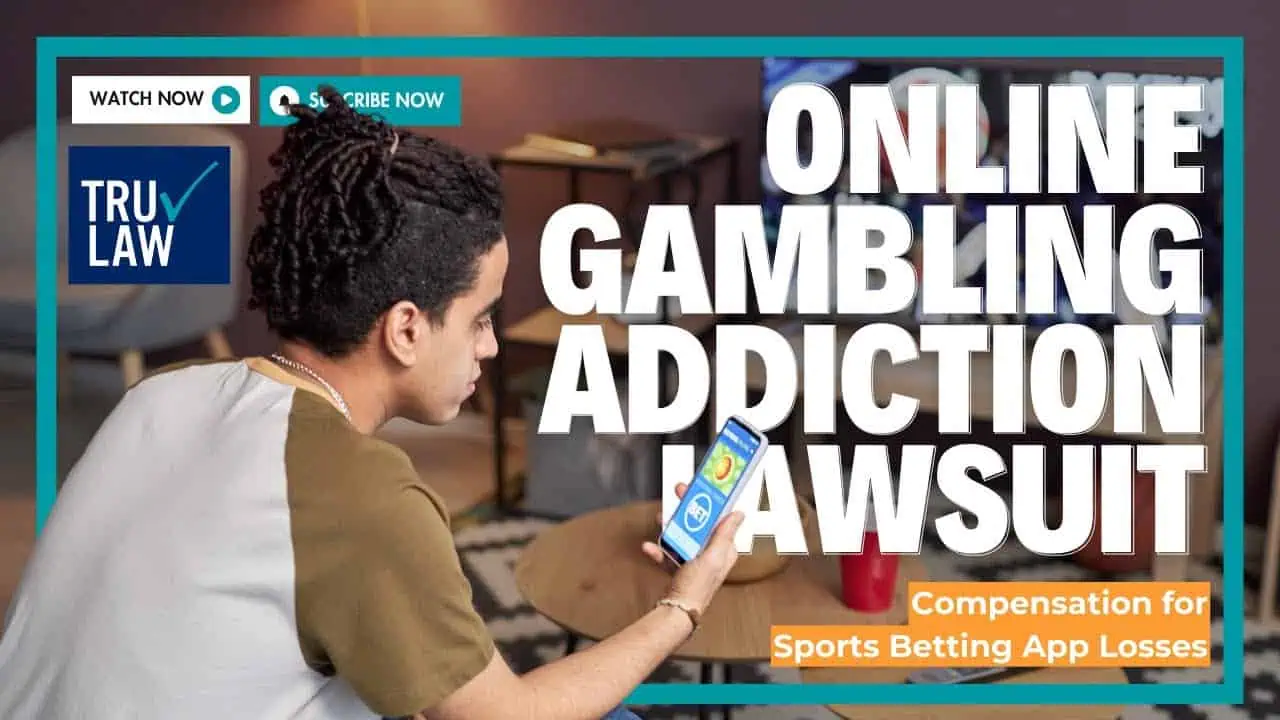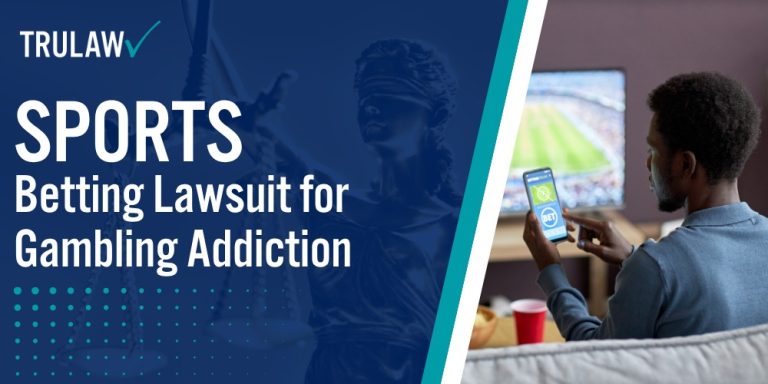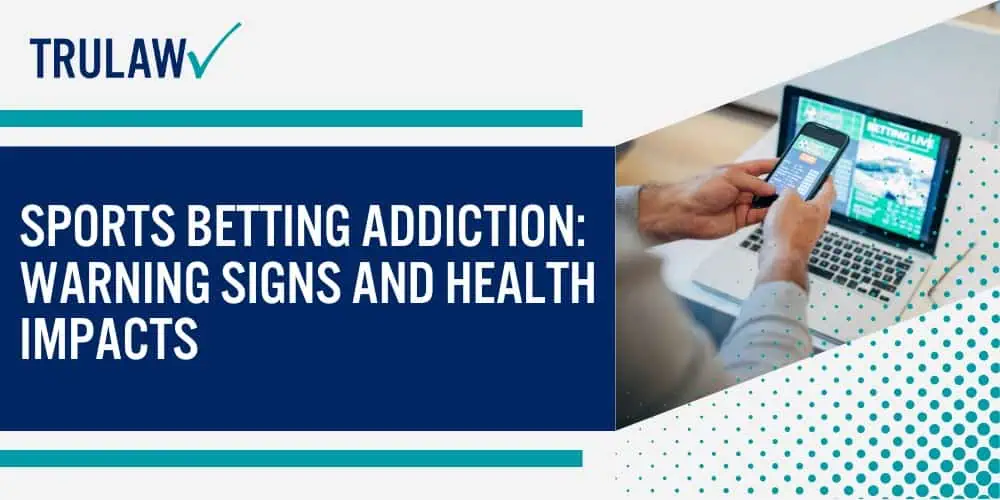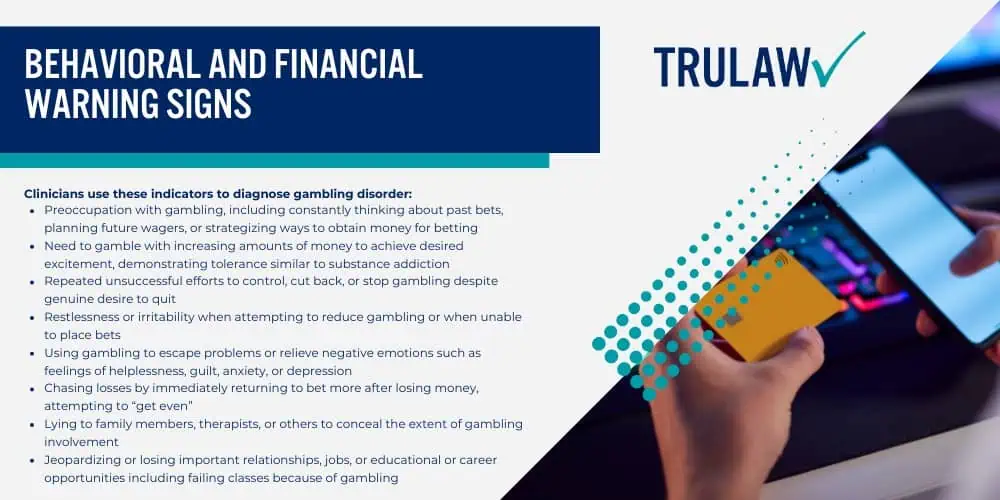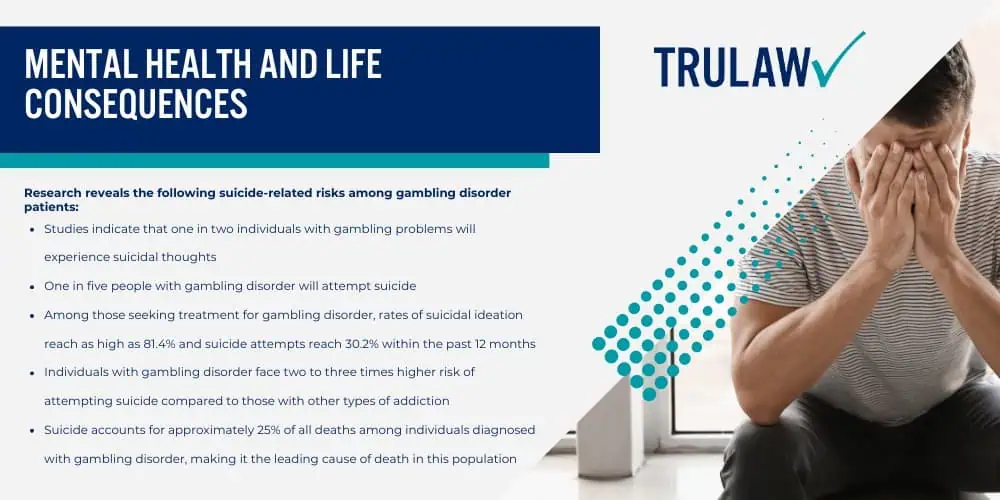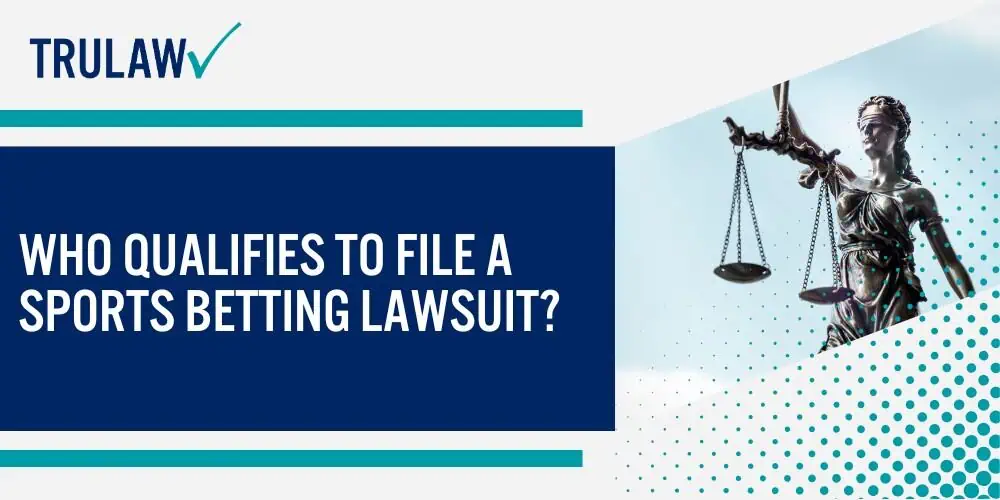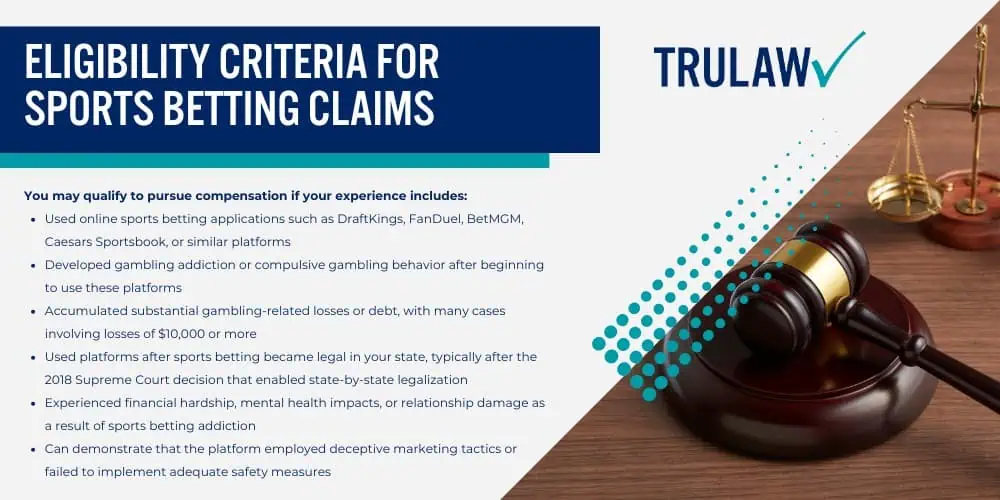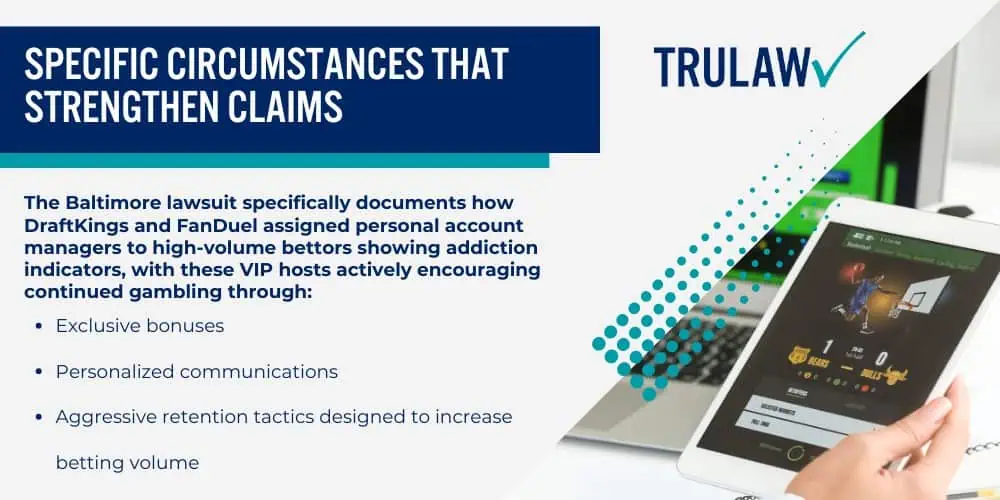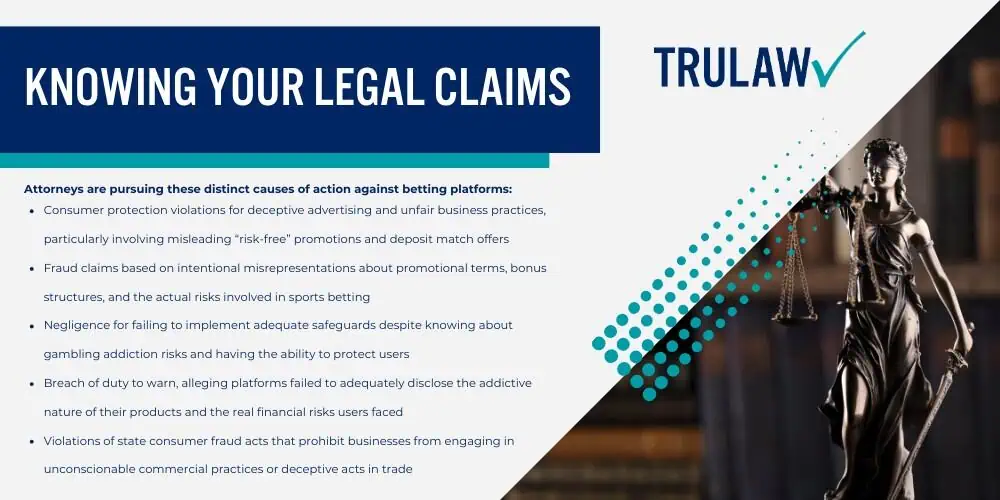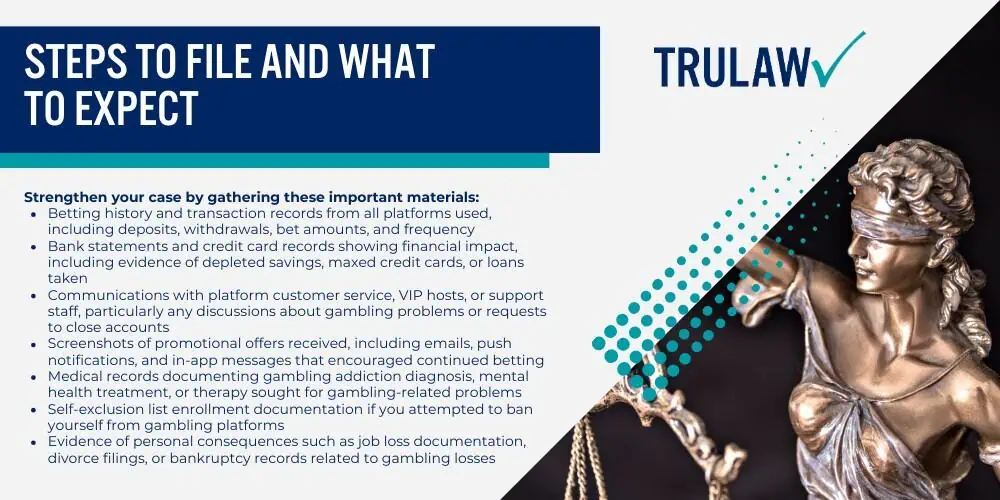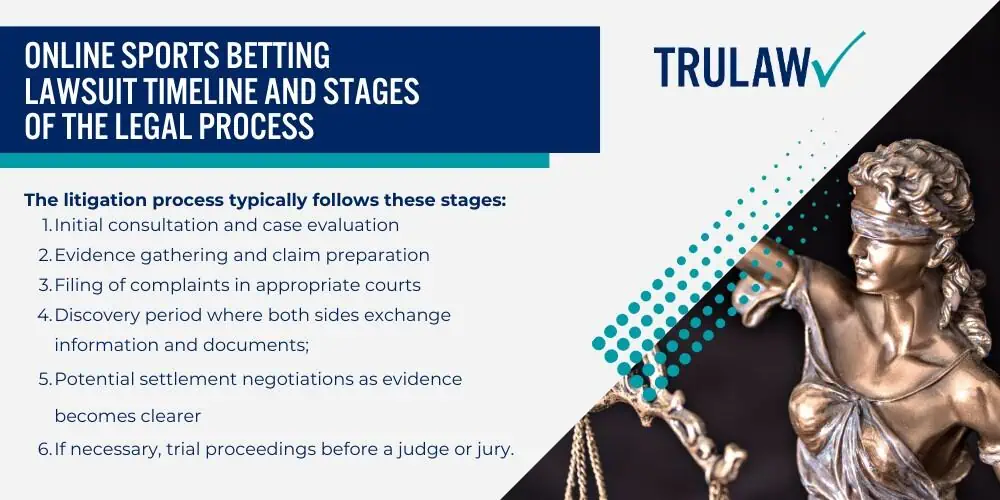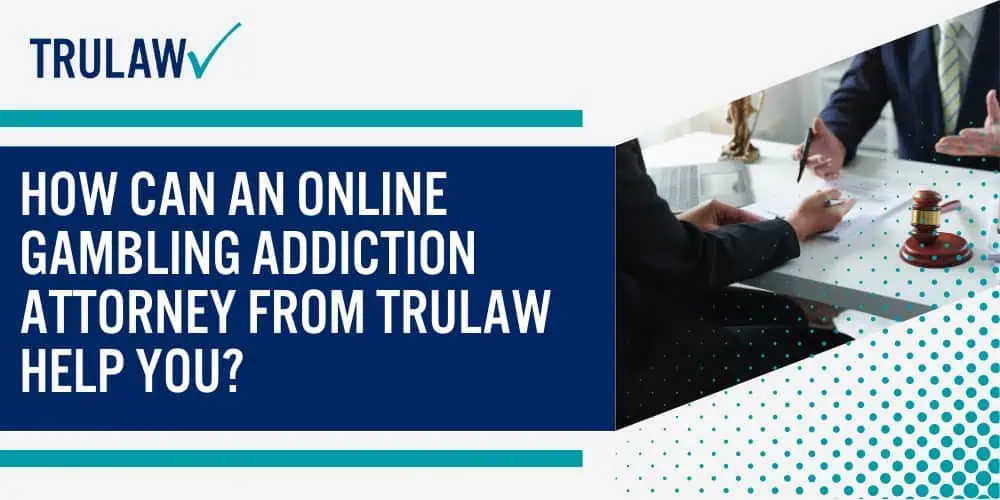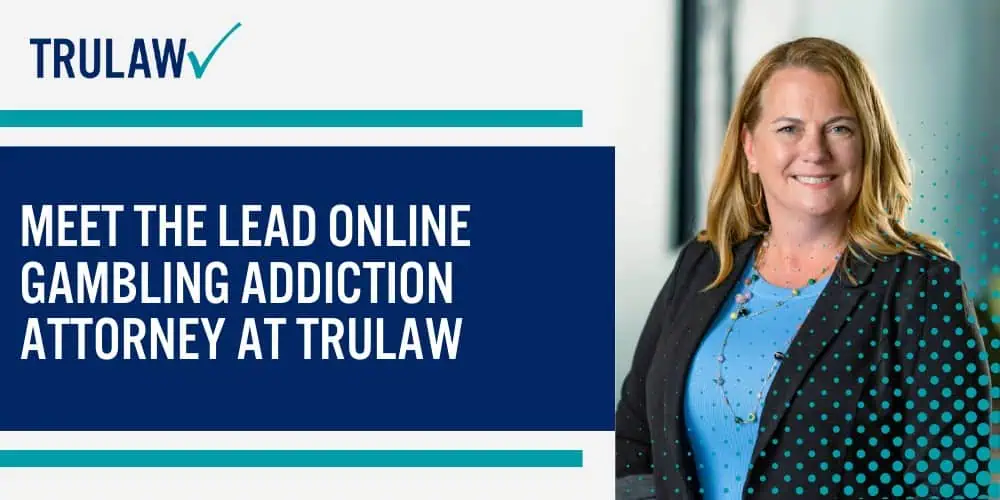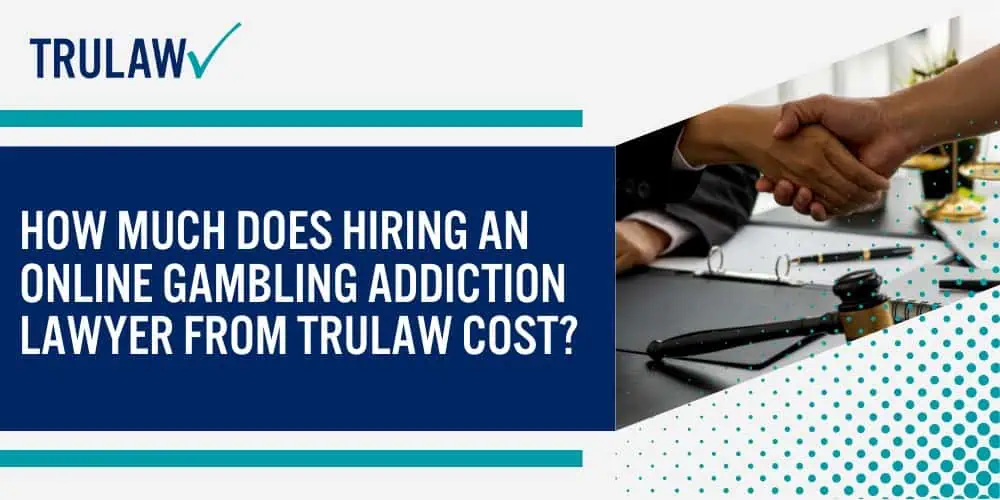Lawsuits filed against DraftKings, FanDuel, and other major sports betting platforms expose specific tactics that plaintiffs claim were deliberately designed to fuel compulsive betting and exploit vulnerable users.
These legal complaints detail calculated strategies that transformed casual sports betting into compulsive behavior through manipulative marketing campaigns and psychologically engineered app features.
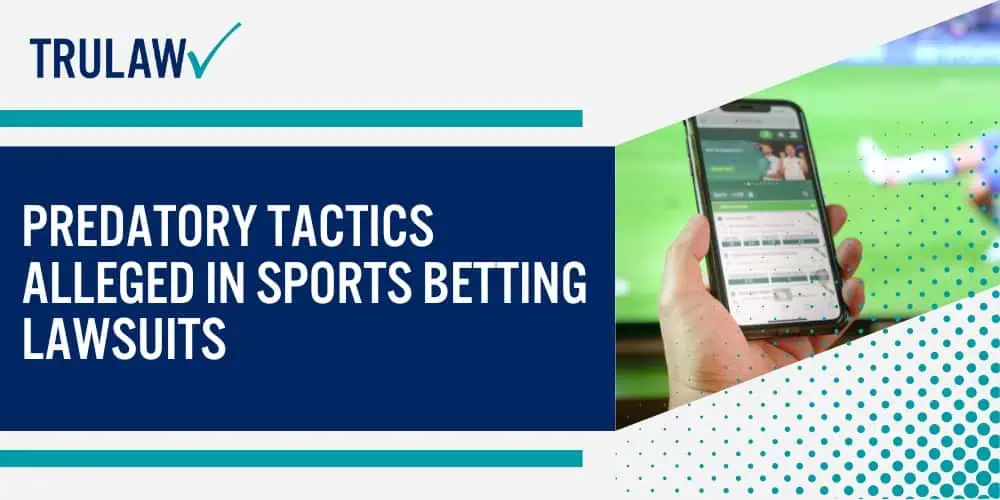
Rather than accidental design choices, the lawsuits allege these were intentional methods to increase betting volume and company profits at the expense of user welfare.
Deceptive Marketing and “Risk-Free” Promotions
Lawsuit claims against sports betting platforms cite widespread allegations of using misleading promotions that create false impressions about the actual risks involved in gambling.
The Pennsylvania class action lawsuit filed in July 2025 specifically targets DraftKings’ use of “risk-free,” “no-sweat,” and deposit match promotions that plaintiffs claim were deceptively structured to trap users into wagering far more than advertised.
According to court filings, these promotions presented bold claims suggesting users could bet without risking their own money, when the reality buried in fine print told a different story.
The complaints allege that accessing promised bonuses required massive betting volumes that far exceeded initial deposits, forcing users to deposit more money with restrictions making it nearly impossible to withdraw promotional funds without first gambling substantially more of their own funds.
For example, promotional “bonus bets” often came with expiration dates as short as seven days and could only be used on specific betting types, forcing rapid gambling decisions.
The Baltimore lawsuit filed in April 2025 provides extensive documentation of deceptive practices, alleging that both DraftKings and FanDuel promoted deposit matches that appeared generous but included hidden terms designed to increase the amount users would ultimately lose.
Multiple lawsuits allege that promotional offers (including social media ads) were specifically engineered to exploit the psychological vulnerabilities associated with gambling behavior through aggressive marketing, using carefully crafted language that suggested safety and guaranteed returns when the opposite was true.
The legal complaints argue these marketing tactics (including social media promotions) constitute fraud and unfair business practices under state law consumer protection statutes.
Addictive App Design Features
Beyond deceptive marketing, lawsuits detail how sports betting platforms employed sophisticated technological features specifically designed to create and sustain addictive gambling behaviors.
These app design elements allegedly transformed traditional sports betting into a rapid-fire, dopamine-driven experience comparable to slot machines, which researchers have long identified as the most addictive form of gambling.
Court filings describe algorithmic tracking systems that monitored user behavior and betting patterns to identify high risk users displaying signs of gambling addiction, then used this data to target them with personalized promotions and increased engagement tactics.
The Baltimore lawsuit specifically alleges that platforms employed VIP host programs that assigned personal account managers to high-volume bettors showing clear addiction indicators, with these hosts actively encouraging continued gambling despite obvious financial and personal harm.
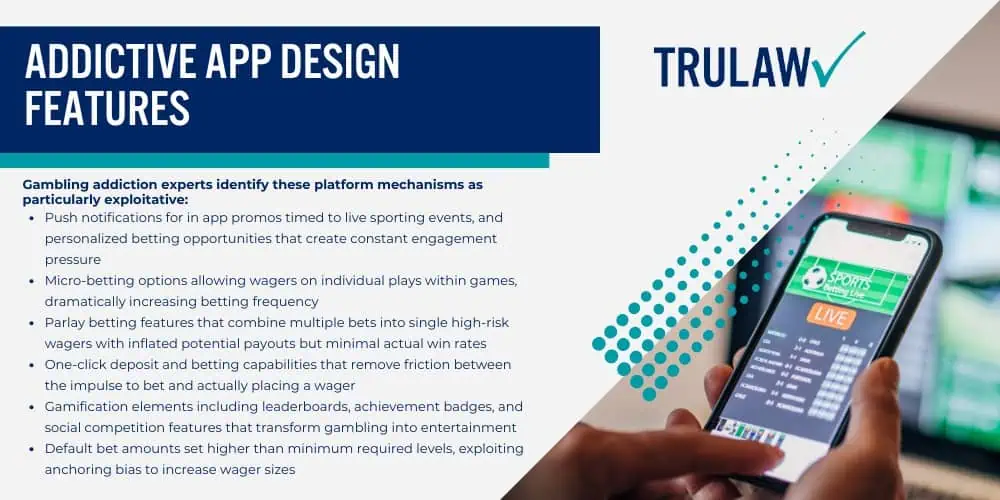
Gambling addiction experts identify these platform mechanisms as particularly exploitative:
- Push notifications for in app promos timed to live sporting events, and personalized betting opportunities that create constant engagement pressure
- Micro-betting options allowing wagers on individual plays within games, dramatically increasing betting frequency
- Parlay betting features that combine multiple bets into single high-risk wagers with inflated potential payouts but minimal actual win rates
- One-click deposit and betting capabilities that remove friction between the impulse to bet and actually placing a wager
- Gamification elements including leaderboards, achievement badges, and social competition features that transform gambling into entertainment
- Default bet amounts set higher than minimum required levels, exploiting anchoring bias to increase wager sizes
How These Features Exploit Brain Chemistry
Research examining gambling app design has identified these features as “dark patterns” that exploit underlying behavioral addictions to keep users gambling longer and betting more.
The rapid pace of micro-betting promotes frequent gambling that activates dopamine reward systems in ways that can condition compulsive behavior, with mere seconds passing between placing a bet and receiving results.
This creates an immersive, trance-like state that researchers describe as “dark flow,” where individuals become completely absorbed by the gambling experience.
Lawsuits allege that platforms deliberately exploited these psychological mechanisms while simultaneously failing to implement meaningful safeguards (such as spending limits) against underage gambling and addiction.
Despite internal training that supposedly taught employees to recognize problem gambling indicators and implement responsible gaming measures recommended by industry organizations (such as the American Gaming Association), complaints claim companies chose to target rather than protect vulnerable users.
When individuals exhibited clear addiction signs (such as rapid bet frequency, escalating wager amounts, or late-night gambling sessions), platforms allegedly encouraged continued play through increased promotional offers rather than intervention or account restrictions.
The legal complaints emphasize that these addictive design features, combined with pervasive advertising at athletic venues (such as LSU’s Tiger Stadium), were not accidental but represented calculated business strategies to increase user engagement and lifetime betting value.
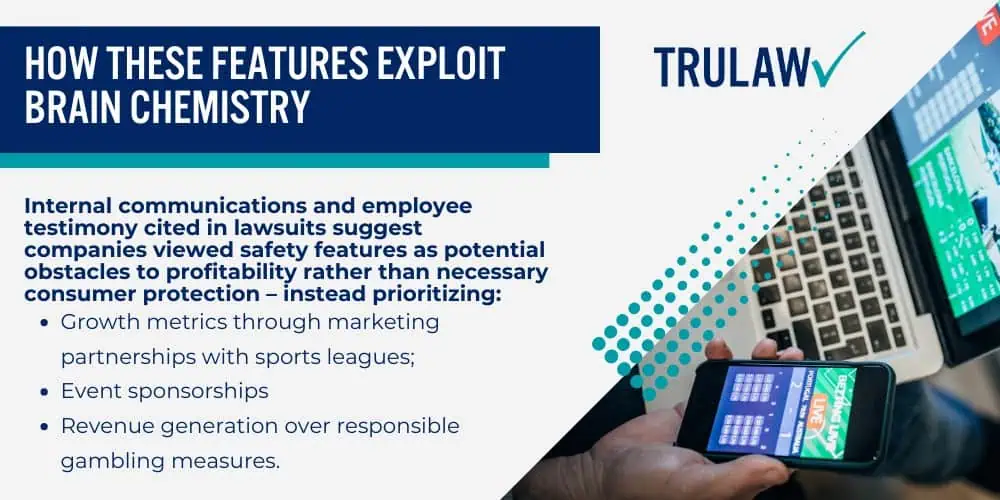
Internal communications and employee testimony cited in lawsuits suggest companies viewed safety features as potential obstacles to profitability rather than necessary consumer protection – instead prioritizing:
- Growth metrics through marketing partnerships with sports leagues;
- Event sponsorships; and
- Revenue generation over responsible gambling measures.
If you’ve experienced addiction to sports betting platforms that used manipulative app features and targeted marketing to exploit your vulnerability, TruLaw can help you understand your legal options.
Use the chat on this page to receive an instant case evaluation and learn whether you qualify to pursue a Gambling Addiction Lawsuit against these predatory platforms.
